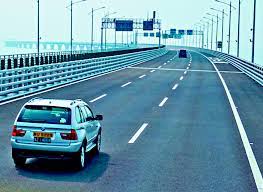Motor insurance across regional economic communities REC varies from country to country so also is the name it is called, from its first place of operation in Europe in 1949 as green card system, other countries have followed suit with preferred colours: brown, yellow, pink as names for the precursor for coming economic integration.
Before the Treaty of Rome in 1957 that laid the foundation for regional economic community in Europe (European Union), the 1949 green card system had spewed a scent of successful integration and mutual recognition of an insurance solution at a regional level and, other economic regions have followed suit including ECOWAS (Economic Community of West African States) established in 1982, covering 14 member countries, same applies in other Africa regional economic communities, COMESA (Common Market for Eastern and Southern Africa), 19 member countries, and ECCAS (Economic Community of Central African States), 11 member countries.
Giving more points for economic and financial integration, Africa Insurance Pulse, a publication of African Insurance Organisation, AIO, said the current cross-border motor insurance scheme that exists in several RECs may serve as an example for successful integration and mutual recognition of an insurance solution in the larger and rising in prominence African Continental Free trade Agreement (AfCFTA), an agreement members states are confident will be on the bourgeoning scale and upscale trade, economic and financial integration in the continent
The motor insurance card system covers policyholders travelling with their vehicle outside their home country in a member country against third party liability damages. In other RECs for instance COMESA its yellow card scheme is endorsed further to offer emergency medical cover to the driver and passengers of the foreign vehicle involved in the traffic accident; besides, the amount of third party liability is limited to the awards cap in place in the country where the accident happened.
The ECOWAS compulsory brown card agreement enables automatic coverage and settlement of claims to comply with the motor insurance requirements of the member countries and also aims to encourage the free movement of goods and people.
Earlier in the year the minister of finance Mrs. Zainab Ahmed, at the inauguration of the current bureaux chairman in Abuja, re-echoed the trappings of the brown card for regional integration and also, assists for full implementation of AfCFTA which the countries in the sub region are signatories to. The chairman of the ECOWAS brown card , Mr Ganiyu Musa, used the event to announce the exit of the revolving challenges of the scheme.
In the ECCAS, the pink card insurance scheme was first launched in 1996 following the same principles as the other African insurance cards. In addition cover can be purchased on demand as a top-up to enable cross-border transportation and regional trade.
Despite the success the scheme creates for insurance integration and the expectation in far wider economic space, Africa Insurance Pulse and Musa corroborates that these cross-border schemes widely used throughout Africa, often times suffer from a lack of acceptance and public support. Claims payment can be slow and in case of disputes quite cumbersome.










































